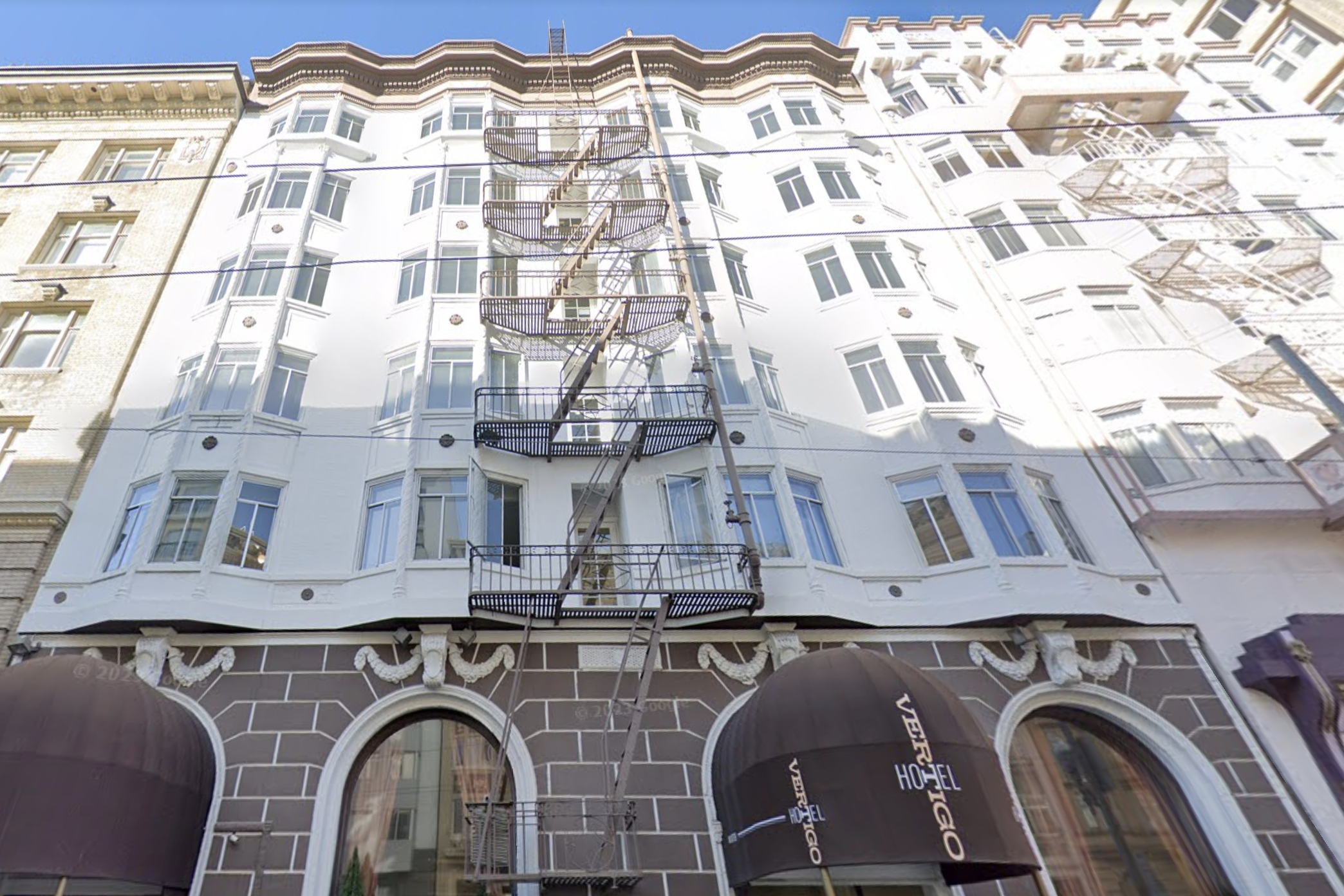San Francisco is set to pay millions of dollars to hotel owners whose properties were damaged during a Covid-era program that placed homeless people into hotels, but it remains unclear who will end up paying for the costs.
At a hearing on Tuesday, the Board of Supervisors approved a payout of $3.4 million to the owner of the Hotel Vertigo in Lower Nob Hill.
The city already approved a $2.9 million payout to the Hotel Tilden last month and a $5.3 million settlement to the owners of the Hotel Union Square in December; other proposed settlements, including a $762,965 payout to the Executive Hotel Vintage Court and a $4.7 million payout to the owner of the Americania Hotel, will be considered in the coming weeks.
In a statement, the City Attorney’s Office said that the settlement for damages at the Hotel Vertigo represented an appropriate resolution but wouldn’t elaborate on the total costs of all damage claims related to the shelter-in-place hotel program, which ran from April 2020 to December 2022. A February budget report estimated the damage settlements could add up to $26 million.
The Federal Emergency Management Agency is expected to reimburse the city for most costs related to the shelter-in-place hotels; the city had filed for $386 million worth of reimbursements by the end of last year, according to the Controller’s Office. It’s unclear whether the federal government will pick up the tab for property damage claims.
During Covid, the city entered into contracts with 29 hotels for use as temporary lodging for unsheltered individuals and others who needed isolation, agreeing to pay flat rates for use of hotels that might have otherwise gone little-used during the pandemic.
Supervisor Ahsha Safaí said he was perturbed that the hotel owners would sue the city after getting sweetheart deals during the pandemic.
“These hotels most likely would have gone under without any opportunity to generate revenue,” Safai said. “They turned around, collected the revenue that they wouldn’t ever have received and then sued the city for damages. I don’t know if it’s hypocritical, ironic or both.”
The shelter-in-place program left a controversial legacy: It succeeded in providing temporary shelter to over 3,700 people in two and a half years, but drew criticism for a seeming lack of oversight in some cases that led to poor outcomes for clients, nuisances for surrounding neighborhoods and eventual damage claims.
Though some shelter-in-place hotels reported success in transferring clients to more permanent options, at least 811 of the hotel guests ended up back on the streets or to unknown destinations, according to a city dashboard.
Safai said he wishes that the city had reached a firm agreement upfront with the hotels that any damage claims would be covered by insurance.
“Now we’ve got to use taxpayer money that could be better spent on housing and getting people off the street […] to pay for damages should have been insured,” Safai said. “It’s tough.”
